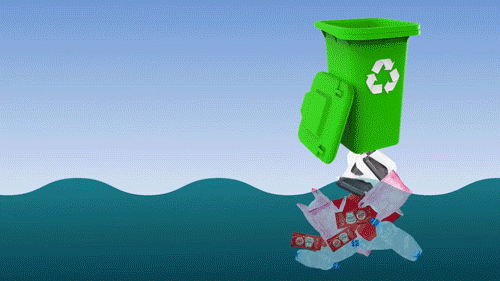Bioplastics
The Gateway to Bettering Earth Day by Day


Issues
[IS.1]
[IS.2]

[IS.12]
Ethical Issues
Although there are many benefits that bioplastics have provided, there are some negative consequences. For example, people may think since bioplastics are completely biodegradable that it's okay to litter; therefore, it can increase littering rates. In addition, it "can increase emissions of greenhouse gases on landfill sites, some need high temperatures to decompose" so having to manage each plastic and it's specific needs in decomposition is wasting energy. They aren't always the most money effective way to save the environment because they are more expensive than traditional petrochemical plastics, "costing between 20 to 100 percent more."
[IS.3] [IS.4]

[IS.5]
Legal Issues

[IS.6]
Bioplastics are generally known for being bio-degradable, this intends that the will decompose completely naturally with bacteria assisting it. However, there aren't any guarantees that bioplastics aren't leaving a toxic footprint behind. People assume bioplastics biodegrade rapidly, which is true but it depends in where it ends up. In the ocean, bioplastics take longer to decompose. Since bioplastics have become so popular that most daily used items like hairbrushes, razors, food containers, are made of bioplastics but, if a person is not looking twice on what the label of a plastic says, it can cause harm to the environment.
[IS.7]
Social Issues
To produce bioplastics, they require natural resources such as crops. Starch coming from rice, potatoes, corn, and wheat are incorporated in bioplastic industry. Because of the popularity of bioplastics and it's production, more crops are being used so it causes "a global food crisis by taking over large areas of land previously used to grow crops for human consumption." People are concerned that making plastic that is biodegradable for the environment's sake is favored over dispersion of food to the people in need. This may increase starvation and death rates.

[IS.8]
[IS.9]
[IS.10] [IS.11]
[IS.8]

Advantages
Bioplastics...
- produce a smaller energy footprint leading to a less polluted environment
- developed from renewable sources
- have the ability to decompose much faster compared to traditional plastics
[IS.10]

Disadvantages
Bioplastics...
- comes from our food supply
- when combines with traditional plastic "may contaminate the recycling process"
- must be discarded properly in order to actually biodegrade or compost